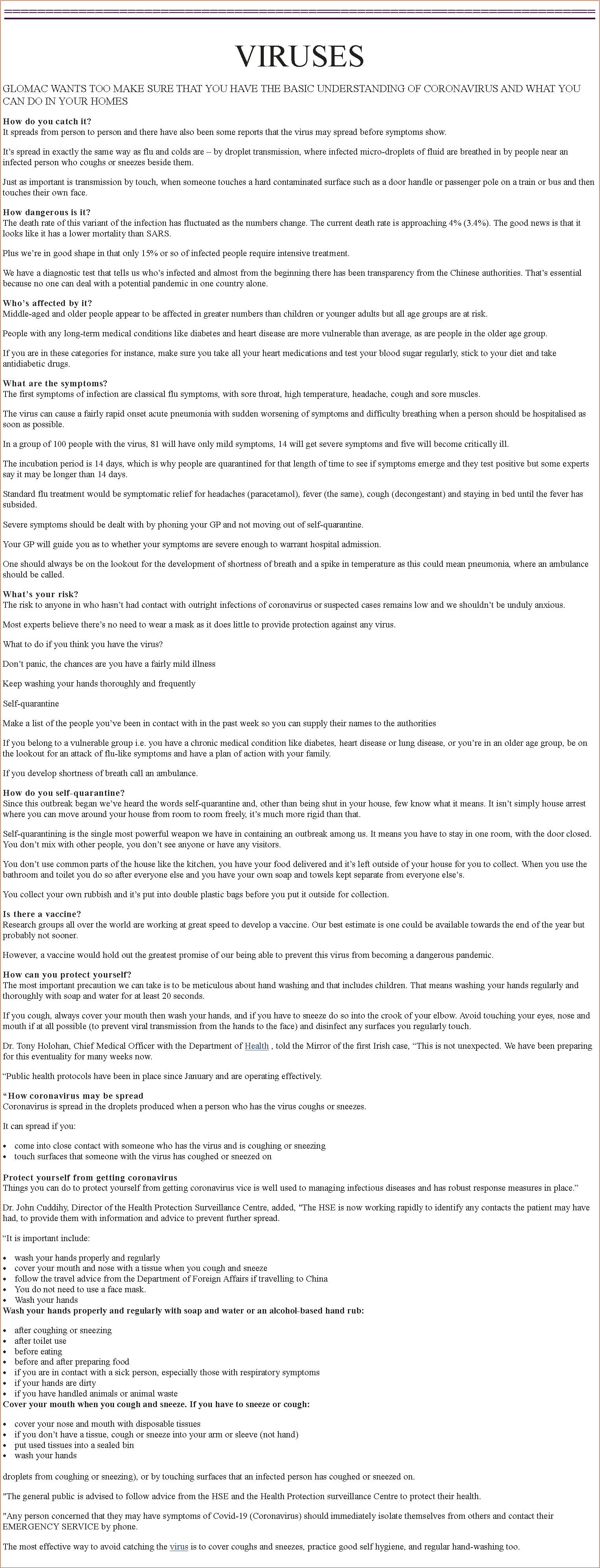
|
Wash your hands properly and regularly with soap and water or an alcohol-based hand rub: · after coughing or sneezing · after toilet use · before eating · before and after preparing food · if you are in contact with a sick person, especially those with respiratory symptoms · if your hands are dirty · if you have handled animals or animal waste Cover your mouth when you cough and sneeze. If you have to sneeze or cough: · cover your nose and mouth with disposable tissues · if you don’t have a tissue, cough or sneeze into your arm or sleeve (not hand) · put used tissues into a sealed bin · wash your hands
Phone: (045) 409 4182 PLDT Angeles City
ANGELES CITY 09285241945 - MICHAEL 09988500328 - GLORIA
MARIKINA 09190729892 - PAULINE
PALAWAN 09999901204 - ANDREW
glomac.philippines2007@gmail.com / glomacpest@gmail.com
|

|
GLOMAC & MACGLO (qc) PEST CONTROL services |
|
“WE ARE THE BEST NOTHING LESS” |


|
GLOMAC & MACGLO (qc) PEST CONTROL services |
|
“WE ARE THE BEST NOTHING LESS” |



